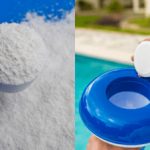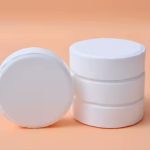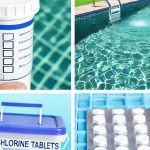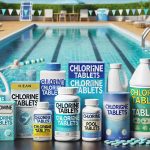Maintaining water quality and safety is the most critical concern for any spa. Ensuring a clean and safe environment for consumers is paramount in creating a trustworthy and relaxing experience. Using the best chlorine tablets is key to achieving this goal, as they help keep the water free from harmful bacteria and contaminants. In this guide, we’ll probe how to choose the best chlorine tablets for your spa, focusing on maintaining optimal water quality and providing a safe environment for all users.

Ⅰ. Spa Water Management Basics
1.Characteristics of Spa Water
Spa water is unique compared to swimming pools, primarily because of its higher temperatures and smaller water volume. These conditions create a more challenging environment for maintaining clean water. Higher temperatures accelerate chemical reactions, leading to faster evaporation and chemical breakdown. Additionally, spas often have limited water circulation, increasing the risk of localized contamination and making consistent water treatment crucial.
2.Importance of Clean and Healthy Water
Maintaining clean and healthy water in your spa is vital for user safety and comfort. Poor water quality can lead to skin irritations, infections, and an overall unpleasant experience. By using the best chlorine tablets, you ensure that your spa water remains free of harmful microorganisms and is safe for all users. Regular maintenance not only improves the user experience but also extends the lifespan of your spa equipment by preventing buildup and corrosion.
Ⅱ. Understanding Chlorine Tablets
1.Types of Chlorine Tablets
When selecting chlorine tablets for your spa, it’s important to understand the differences between stabilized and unstabilized options.
a.Stabilized Chlorine Tablets (Tri-Chlor):
These tablets contain cyanuric acid, which acts as a stabilizer, protecting chlorine from being degraded by sunlight. This makes them ideal for outdoor spas where sunlight exposure is a concern. Stabilized chlorine tablets provide a long-lasting effect, reducing the need for frequent application. However, they can lead to a buildup of cyanuric acid over time, which may reduce the effectiveness of chlorine.
b.Unstabilized Chlorine Tablets (Di-Chlor):
Unstabilized chlorine tablets dissolve quickly and provide an immediate increase in chlorine levels, making them suitable for both indoor spas and outdoor spas with controlled sunlight exposure. They do not contain stabilizers, which eliminates the risk of cyanuric acid buildup. However, they may require more frequent dosing to maintain adequate chlorine levels.

2.Chlorine Tablet Sizes
Chlorine tablets typically come in two main sizes: 1-inch and 3-inch tablets.
a.1-Inch Tablets:
These are ideal for smaller spas or spas with lower water volumes. They dissolve quickly, allowing for precise chlorine adjustments and are easy to handle for smaller maintenance tasks.
b.3-Inch Tablets:
Best suited for larger spas or those with higher water volumes, these tablets dissolve more slowly and provide a steady release of chlorine over time. They reduce the need for frequent maintenance and are more convenient for maintaining consistent chlorine levels in bigger spas.
Ⅲ. Key Considerations When Choosing Chlorine Tablets
1.Size and Type of Spa
Selecting the best chlorine tablets for your spa depends on the size and type of your spa.
a.Spa Size and Water Capacity:
Larger spas require more chlorine to maintain clean water. For such settings, 3-inch tablets are more efficient as they dissolve slowly and ensure a steady supply of chlorine. Smaller spas or personal spas can benefit from 1-inch tablets, which offer quicker adjustments and easier control over chlorine levels.
b.Indoor vs. Outdoor Spas:
Indoor spas are typically shielded from direct sunlight, making unstabilized chlorine tablets a good option to avoid the buildup of cyanuric acid. Outdoor spas, on the other hand, benefit from stabilized chlorine tablets that protect chlorine from UV degradation, ensuring longer-lasting disinfection.

2.Usage Frequency and User Load
a.Frequency of Use:
Spas that are used frequently require more diligent maintenance to manage higher levels of contaminants introduced by multiple users. Frequent use increases the need for consistent chlorine levels, which can be efficiently managed with stabilized chlorine tablets for less frequent adjustments.
b.User Load:
High user loads introduce more contaminants and organic matter, necessitating a more robust chlorination strategy. Adjusting chlorine levels based on user load helps maintain water quality and ensures a pleasant experience for all spa users.
3.Water Quality Monitoring and Maintenance Goals
a.Regular Water Testing:
It is crucial to regularly test spa water for chlorine levels, pH balance, and total alkalinity to ensure it meets health and safety standards. Using water testing kits or automated water testing systems can help monitor these parameters effectively.
b.Adjusting Chlorine Use:
Based on water test results, you may need to adjust the chlorine tablet dosage to maintain balanced water chemistry. Proper monitoring ensures that chlorine remains effective, providing a safe and enjoyable spa environment.
Ⅳ. Cost and Economic Efficiency Analysis
1.Long-Term Costs
When choosing chlorine tablets, consider both the initial and long-term costs. While larger tablets might have a higher upfront cost, they can provide more consistent chlorination and reduce the frequency of maintenance, leading to long-term savings. Purchasing chlorine tablets in bulk can also lower costs and ensure you have a ready supply for regular spa maintenance.
2.Cost-Effectiveness and Value
a.Choosing Cost-Effective Options:
To maximize value, select chlorine tablets that offer the best balance between cost and effectiveness. Higher-quality tablets might have a higher initial cost but can save money over time by requiring less frequent replacement and providing more efficient water treatment.
b.Saving Strategies:
Consider strategies such as bulk purchasing, choosing high-efficiency tablets, and optimizing tablet size and type based on your spa’s specific needs to reduce overall costs.
Ⅴ. Comprehensive Analysis and Recommendations
Comparative Analysis
When choosing chlorine tablets for your spa, consider the advantages and disadvantages of different types and brands. Stabilized chlorine tablets offer long-lasting disinfection but may require monitoring of cyanuric acid levels. Unstabilized tablets provide flexibility and immediate chlorination without the risk of stabilizer buildup.
Final Recommendations
For spas with frequent use or high user loads, stabilized chlorine tablets can offer more consistent maintenance with less frequent dosing. For smaller, indoor spas, unstabilized chlorine tablets are often sufficient and help avoid issues with stabilizer buildup. Regular monitoring and adjustment of chlorine levels are essential to ensure the best water quality.
By carefully considering these factors, you can choose the best chlorine tablets for your spa, ensuring a clean, safe, and enjoyable environment for all users.





